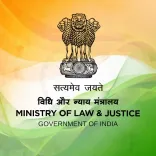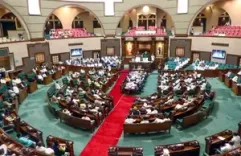Did the Allahabad HC Dismiss the Plea to Classify Shahi Idgah Mosque as Disputed?

Synopsis
Key Takeaways
- The Allahabad High Court dismissed the plea to declare the Shahi Idgah mosque disputed.
- The court's ruling emphasizes the historical significance of the site.
- The decision was made after thorough consideration of arguments from both parties.
- This case is part of a larger context involving claims on land surrounding Sri Krishna Janmabhoomi.
- The Muslim side asserts a long-standing presence at the site.
Prayagraj, July 4 (NationPress) The Allahabad High Court on Friday dismissed a plea that sought to designate the Shahi Idgah mosque in Mathura as a disputed structure in the ongoing litigation concerning the Sri Krishna Janmabhoomi-Shahi Idgah complex.
The petition was brought forth by Mahendra Pratap Singh, who is the President of the Sri Krishna Janmabhoomi Mukti Nyas.
The case was presided over by Justice Ram Manohar Narayan Mishra, who had reserved the decision after listening to arguments from both parties. The ruling was subsequently delivered as anticipated on Friday.
The petitioner asserted that the location of the Shahi Idgah mosque was originally the site of a Hindu temple.
He argued that the mosque structure features symbols of Hindu deities on its walls and contended that the Muslim side has failed to present any documentary proof to substantiate its status as a mosque.
Furthermore, he mentioned that the structure is absent from official land records (Khasra-Khatauni), lacks municipal documentation, and has not incurred any tax payments, thus it should not be acknowledged as a mosque.
The Muslim side vehemently opposed the petition, claiming that the Shahi Idgah has been present at the site for over 400 years.
They argued that the request to declare the structure as disputed is unfounded and should be dismissed.
The court sided with the Muslim perspective and rejected the petition, opting not to categorize the Shahi Idgah as a disputed property, contrary to the Babri Masjid case, which the petitioner had referenced as a precedent.
This was one of 18 petitions filed by the Hindu faction concerning claims on land surrounding Sri Krishna Janmabhoomi.
The dispute pertains to the Aurangzeb-era Shahi Idgah mosque in Mathura, which the Hindu side alleges was constructed after demolishing a temple at the birthplace of Lord Krishna.







